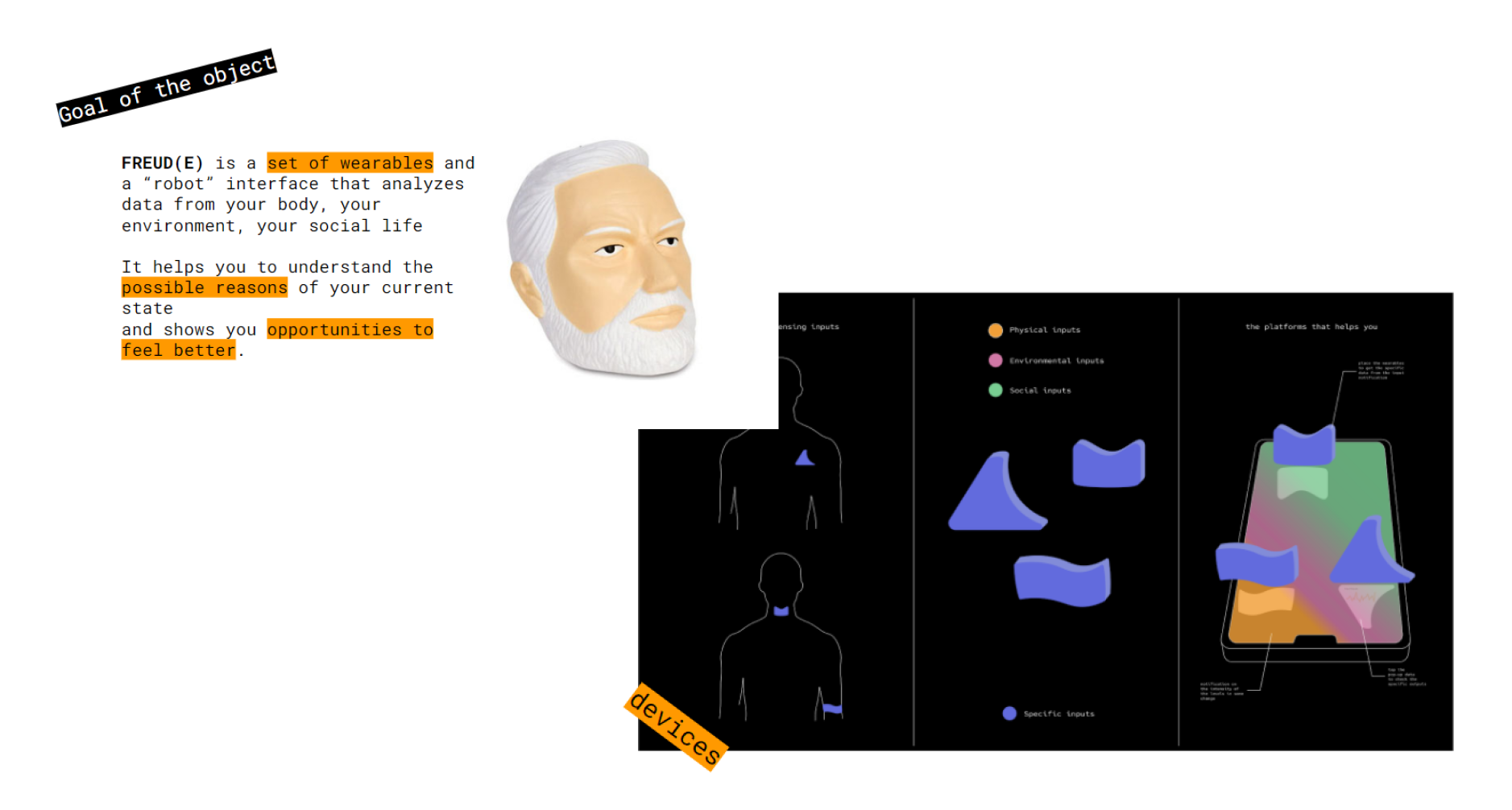extended intelligences (2/2)
7th to 10th of December 2021
faculty: Ramon Sanguesa, Lucas Lorenzo Pena
week reflections
The second week of the seminar continued with a dive in the history of Artificial Intelligence. It was also the occasion to discuss the ethics of AI and all the possible bias that we need to take into consideration from the begining of each project.
animistic design Ramon and Lucas also did a focus on Animistic Design which was inspiring. The term was coined by interaction designer Philip van Allen and promotes a different vision of design : instead of solving a problem, create a system that helps others to solve it.
The idea is to create a system that drives you to be more creative. I felt that I connected a lot with this vision of design and problem solving so I would be interested to explore more around that topic.
This vision of design advocates against "human centered design" and rather propose to create ecosystems where humans and devices can have new and richer interactions not reduced to a device that executes tasks for humans.
hypothetical intelligent object
We worked in groups to define a hypothetical "intelligent" object. In our group, we decided to create a set of wearables that would become a sort of health monitor.To continue on the idea of Animistic design, the set of objects we decided that the device should not "tell" you what to do based on the collecte health data but rather give you autonomy in your decisions. The idea was that the wearables can be layed on a screen, the screen would display data visualization based on color gradients instead of charts to avoid "data anxiety" (with a possibility to dive deeper in the data if you want to) and suggests opportunities to feel better.
The presentation of our project is visible here.
